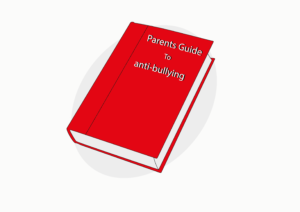
What Is Parental Guidance?
Parents or a parent need to be there for their child, when a child ask or open up about something or a situation. Or, what parents want to know in particular.
It is very important for both parents and child to have a deep interaction, and to guide and nurture them. We all know for parents, it is best to be a great role model for the children. You would want to raise your children beautifully and well-mannered.
What Is Parental Supervision?
It is a parenting skill used to look after and keep an eye out on their children’s whereabouts and activities. Generally, young children are not capable to look after themselves, and you would never know what situation they would get themselves into. So, it is very important to be there for them.
What Can You Teach Your Child?
There are some things you can teach your child when they are younger. However, when they grow up to a certain age, there are some things you would want to educate them on.
As for life lessons, those are simple lessons that children can learn from a young age. For example, to be respectful, and to be grateful for what you have. Always be honest, own up for your mistakes, and learn from them. Never judge people. Children should always listen and think before they speak. Never give up and keep trying your best. And last of all, spend time with your loved ones.
There are many more lessons you could teach your child as they gradually grow older. For instance, you should educate them on life skills. This is one of the most important lessons that children should learn. Life skills includes, to learn basic cooking and have good hygiene. Learn how to drive a car, do laundry, and financially budget yourself. Always look after the house, and keep everything in check. Be careful where you surround yourself, and be on time. Also, learn the reading and understanding, and have a healthy balanced diet.
When your child becomes a teenager, there are certain topics the school will teach them. Such as, sex education, bullies and cyber-bullies, drugs and alcohol, and plenty more. No matter of what they have learned, it is still important for parents to educate their child on these topics. If there is another subject you child hasn’t learned, it will be good for you and them to talk about it and have the understanding.
Talking To Your Child
If you see your child worried or upset about something, talk to them. Have a conversation with them when you can, and in a private space. It takes time for them to have an open chat with you and to feel comfortable. So, to make sure they are not uncomfortable; you should speak calmly, think before you ask or say something, and ask if they are doing okay and who are the people they spend time with.
When it comes to a point where your child finally opens up to you about a certain situation, advice them, and give them the love and support they need. They need reassurance and guidance. Just know it can be difficult for them to talk about an issue, because they don’t know how you would respond and react. Don’t yell, shout, or even argue. Otherwise, they will regret opening up to you, and be afraid.
Let them know they are not alone, and you will help them get through it.
You can contact the National Bullying Helpline from our Helpline section on the Contact page to talk to someone.